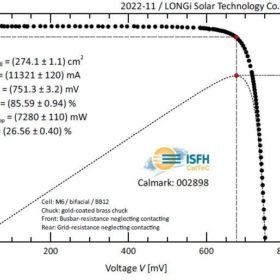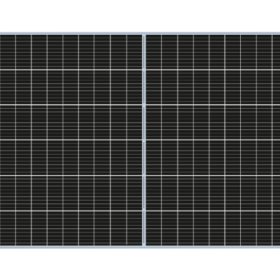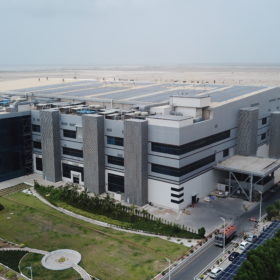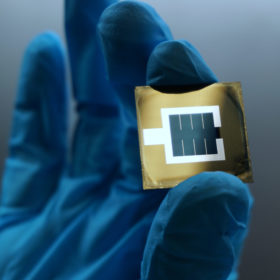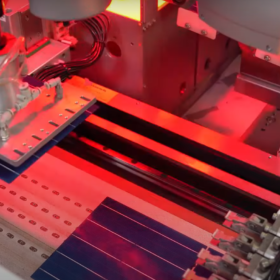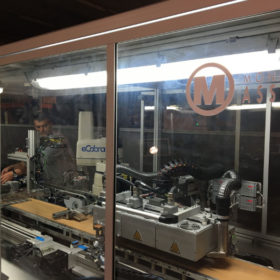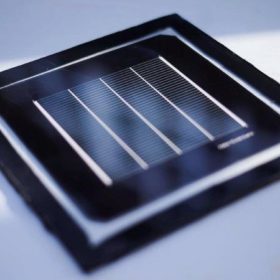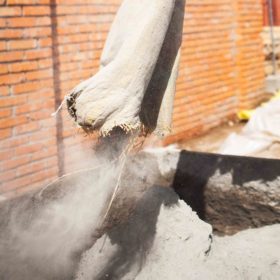“2022 was an eventful year for solar manufacturing”
pv magazine speaks to Dr Hitesh Doshi, chairman and managing director of Waaree Energies, to know about the progress of solar manufacturing in India in 2022 and the way forward.
Longi claims world’s highest efficiency for p-type, indium-free HJT solar cells
Longi said it has achieved a 26.56% efficiency rating for a gallium-doped, p-type heterojunction (HJT) solar cell and a 26.09% efficiency rating for an indium-free HJT cell, both based on M6 wafers. Germany’s Institute for Solar Energy Research in Hamelin (ISFH) has confirmed the results.
Sunbond unveils 550 W mono PERC module
The Gujarat-based manufacturer has introduced mono PERC modules built with 144 half-cut M10 cells and ten busbars. These are available in power outputs ranging from 520 W to 550 W.
Adani Solar becomes India’s sole producer of large-sized monocrystalline silicon ingots
Adani Solar has started the production of large-size monocrystalline silicon ingots for M10 and G12 wafers. It targets 2 GW of ingot and wafer capacity by the end of 2023 and 10 GW by 2025.
Researchers achieved world record 32.5% efficiency for a perovskite tandem solar cell
A group of researchers from Helmholtz-Zentrum Berlin (HZB) has achieved a new world efficiency record for a silicon-perovskite tandem solar cell, with a certified efficiency of 32.5%.
Waaree ramping up solar module capacity to 12 GW
The Mumbai-headquartered manufacturer is expanding its solar module manufacturing capacity to 12 GW from 9 GW at present. The new addition will start production by March.
BVG to set up 2 GW solar module fab
The facility management company plans a 500 MW fully automated module line initially and expand it to 2 GW. The facility will be located in North India.
Meyer Burger to commercialize 29.6%-efficient perovskite tandem solar cells
Meyer Burger is working with several research institutes in Switzerland and Germany to integrate perovskite tandem technology into its manufacturing processes.
Cooling down photovoltaic panels with concrete
Scientists in Italy have proposed the use of radiative coolers made of cementitious materials to reduce the operating temperature of solar panels. The novel system configuration consists of a stack made by a reflector, a cement-based radiative cooler, and a bifacial solar cell.
Adani appoints EIL as owner’s engineer for polysilicon project
Engineers India Ltd (EIL) has been appointed as owner’s engineer for Adani Group’s 30,000 MTPA polysilicon and 500 MTPA monosilane project in Gujarat.

